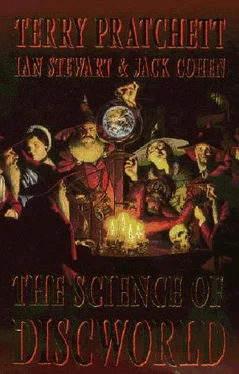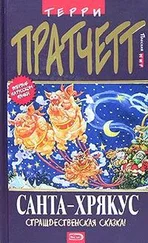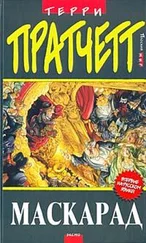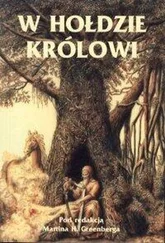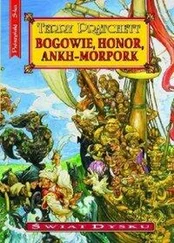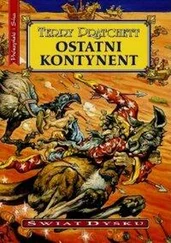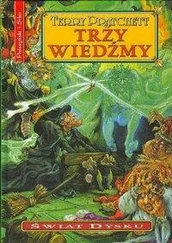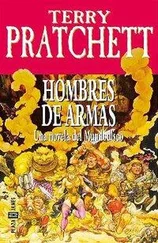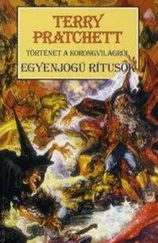Terry Pratchett - Science of Discworld
Здесь есть возможность читать онлайн «Terry Pratchett - Science of Discworld» весь текст электронной книги совершенно бесплатно (целиком полную версию без сокращений). В некоторых случаях можно слушать аудио, скачать через торрент в формате fb2 и присутствует краткое содержание. Жанр: Фантастика и фэнтези, на английском языке. Описание произведения, (предисловие) а так же отзывы посетителей доступны на портале библиотеки ЛибКат.
- Название:Science of Discworld
- Автор:
- Жанр:
- Год:неизвестен
- ISBN:нет данных
- Рейтинг книги:4 / 5. Голосов: 1
-
Избранное:Добавить в избранное
- Отзывы:
-
Ваша оценка:
- 80
- 1
- 2
- 3
- 4
- 5
Science of Discworld: краткое содержание, описание и аннотация
Предлагаем к чтению аннотацию, описание, краткое содержание или предисловие (зависит от того, что написал сам автор книги «Science of Discworld»). Если вы не нашли необходимую информацию о книге — напишите в комментариях, мы постараемся отыскать её.
Science of Discworld — читать онлайн бесплатно полную книгу (весь текст) целиком
Ниже представлен текст книги, разбитый по страницам. Система сохранения места последней прочитанной страницы, позволяет с удобством читать онлайн бесплатно книгу «Science of Discworld», без необходимости каждый раз заново искать на чём Вы остановились. Поставьте закладку, и сможете в любой момент перейти на страницу, на которой закончили чтение.
Интервал:
Закладка:
'Not in so many words, no. Not horizontally.'
'Eat, fight, mate and die,' said the Lecturer in Recent Runes. 'Even the crabs were better than this. Even the blobs made an effort. When they come to write the history of this world, this is the page everyone will skip. Terribly dull lizards, they'll be called. You mark my words.'
'They have stayed around for a hundred million years, sir,' said Rincewind, who felt he had to stand up for non-achievers.
'And what have they done? Is there a single line of poetry? A building of any sort? A piece of simple artwork?'
'They've just not died, sir.'
'Not dying out is some kind of achievement, is it?' said the Lecturer in Recent Runes.
'Best kind there is, sir.'
'Pah!' said the Dean. 'All they prove is that species go soft when there's nothing happening! It's nice and warm, there's plenty to eat ... it's just the sea without water. A few periods of vulcanism or a medium-sized comet would soon have them sitting up straight and paying attention.'
The air shimmered and Ponder Stibbons appeared.
'We have intelligence, gentlemen,' he said.
'I know,' said the Dean.
'I mean, the omniscope has found signs of developing intelligence. Twice, sir.'
The herd was big. It was made up of large, almost hemispherical creatures, with faces that had all the incisive cogitation of a cow.
Much smaller creatures were trotting along at the edges. They were dark, scrawny and warbled to one another almost without cease.
They also carried pointed sticks.
'Well ...' Ridcully began, dismissively.
'They're herding them, sir!' said Ponder.
'But wolves chase sheep ...'
'Not with pointy sticks, sir. And look there ...'
One of the beasts was towing a crude travois, covered with leaves. Several herders were lying on it. They were pale around the muzzles.
'Are they sick, d'you think?' said the Dean.
'Just old, sir.'
'Why'd they want to slow themselves down with a lot of old people?'
Ponder dared a short pause before answering.
'They're the library, sir. I suppose. They can remember things. Places to hunt, good waterholes, that sort of thing. And that means they must have some sort of language.'
'It's a start, I suppose,' said Ridcully.
'Start, sir? They've nearly done it all!' Ponder put his hand to his ear. 'Oh ... and HEX says there's more, sir. Er ... different.'
'How different?'
'In the sea again, sir,'
'Aha,' said the Senior Wrangler.
In fact on the sea was more accurate, he had to admit. The colony they found stretched for miles, linking a chain of small rocky islands and sandbanks as beads on a chain of tethered driftwood and rafts of floating seaweed.
The creatures inhabiting it were another type of lizard. Still extremely dull, the wizards considered, compared to some of the others. They weren't even an interesting colour and they had hardly any spikes. But they were ... busy creatures.
'That seaweed ... does it look sort of regular to you?' said the Lecturer in Recent Runes, as they drifted over a crude wall. They're not farming, are they?'
'I think ...' Ponder looked down. The water washed over the wall of rocks. 'It's a big cage for fish. The whole lagoon. Er ... I think they've built the walls like that so the tide lets the fish come in and then they're stuck when it goes down.'
Lizards turned their heads as the semi-transparent men floated past, but seemed to treat them as no more than passing shadows.
'They're harnessing the power of the sea?' said Ridcully. 'That's clever.'
Lizards were diving at the far side of the lagoon. Some were busy around rock pools on one of the lower islands. Small lizards swam in the shallows. Along one stretch of driftwood walkways, strips of seaweed were drying in the breeze. And over everything was a yip-yipping of conversation. And it was conversation, Ponder decided. Animals didn't wait for other animals to finish. Nor did wizards, of course, but they were a breed apart.
A little way away, a lizard was carefully painting the skin of another lizard, using a twig and some pigments in half-shells. The one doing the painting was wearing a necklace of different shells, Ponder realized.
'Tools,' he murmured. 'Symbols. Abstract thought. Things of value ... is this a civilization, or are we merely tribal at the moment?'
'Where's the sun?' said the Senior Wrangler. 'It's always so hazy, and it's hard to get used to directions here. Wherever you point, it's at the back of your own head.'
Rincewind pointed towards the horizon, where there was a red glow behind the clouds.
'I call it Widdershins,' he said. 'Just like at home.'
'Ah. The sun sets Widdershins.'
'No. It doesn't do anything,' said Rincewind. 'It stays where it is. The horizon comes up.'
'But it doesn't fall on us?'
'It tries to, but the other horizon drags us away before it happens.'
'The more time I spend on this globe, the more I feel I should be holding on to something,' the Dean muttered.
'And the light isn't reflected around the world?' said the Senior Wrangler. 'It is at home. It's always very beautiful, the glow that comes up through the waterfall.'
'No,' said Rincewind. 'It just gets dark, unless the moon is up.'
'And there's still just the one sun, isn't there?' said the Senior Wrangler, a man with something on his mind.
'Yes.'
'We didn't add another one?'
'No.'
'So ... er ... what is that light over there?'
As one wizard, they turned towards the opposite horizon.
'Whoops,' said the Dean, as the distant thunder died away and lights streamed high across the sky.
The lizards had heard it too. Ponder looked around. They were lining the walkways, watching the horizon with all the intelligent interest of a thinking creature wondering what the future may hold...
'Let's get back to the High Energy Magic building before the boiling rain, shall we?' said Ridcully. 'This really is too depressing.'
THE DEATH OF DINOSAURS
LlFE TURNS UP EVERYWHERE IT CAN.
Life turns up everywhere it can't.
And just when it seems to have got itself going really comfortably, with a sustainable lifestyle and gradual progress towards higher things, along comes a major catastrophe and sets it back twenty million years. Yet, paradoxically, those same disasters also pave the way to radically new lifeforms ...
It's all rather confusing.
Life is resilient, but any particular species may not be. Life is constantly devising new tricks. The one with eggs is brilliant: provide the developing embryo with its own personal life-support machine. Inside, the environment is tailored to the needs of that species, and what's outside doesn't matter much, because there's a barrier to keep it out.
Life is adaptable. It changes the rules of its own game. As soon as eggs make their appearance, the stage is set for the evolution of egg-eaters ...
Life is diverse. The more players there are, the more ways there are to make a living by taking in each others' washing.
Life is repetitious. When it finds a trick that works, it churns out thousands of variations on the same basic theme. The great biologist John (J.B.S.) Haldane was once asked what question he would like to pose to God, and replied that he'd like to know why He has such an inordinate fondness for beetles.
There are a third of a million beetle species today, far more than in any other plant or animal group. In 1998 Brian Farrell came up with a possible answer to Haldane's query. Beetles appeared about 250 million years ago, but the number of species didn't explode until about 100 million years ago. That happens to be just when flowering plants came into existence. The 'phase space' available for organisms suddenly acquired a new dimension, a new resource became available for exploitation. The beetles were beautifully poised to take advantage by eating the new plants, especially their leaves. It used to be thought that flowering plants and pollinating insects drove each other to wilder and wilder diversity, but that's not true. However, it is true for beetles. Nearly half of today's beetle species are leaf-eaters. It's still an effective tactic.
Читать дальшеИнтервал:
Закладка:
Похожие книги на «Science of Discworld»
Представляем Вашему вниманию похожие книги на «Science of Discworld» списком для выбора. Мы отобрали схожую по названию и смыслу литературу в надежде предоставить читателям больше вариантов отыскать новые, интересные, ещё непрочитанные произведения.
Обсуждение, отзывы о книге «Science of Discworld» и просто собственные мнения читателей. Оставьте ваши комментарии, напишите, что Вы думаете о произведении, его смысле или главных героях. Укажите что конкретно понравилось, а что нет, и почему Вы так считаете.
